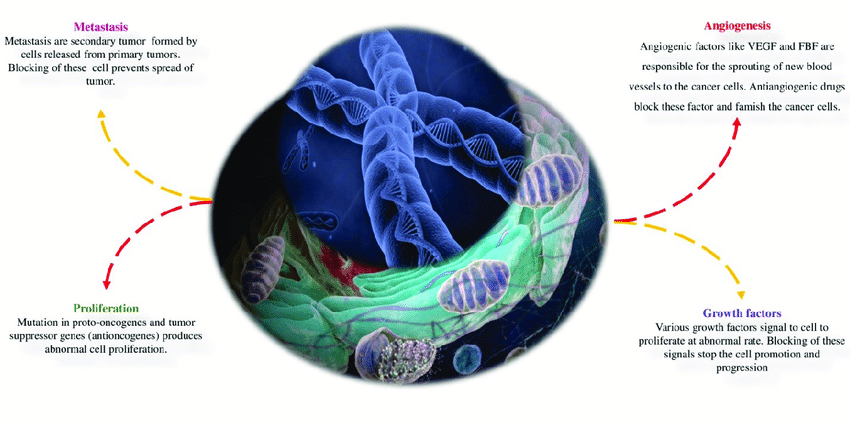Hepatocellular carcinoma, which mostly occurs in cases with liver cirrhosis, accounts for 90% of primary liver cancers. The rest is “bile duct cell carcinoma (intrahepatic bile duct cancer)” that forms in the bile duct that runs in the liver. The leading cause is a chronic liver disease caused by Hepatitis B or C virus infection accounts for about 80% of the reasons.
However, in recent years, anti-viral therapy has made it possible to excrete the hepatitis virus from the body, so liver cancer caused by viral hepatitis is gradually decreasing. On the other hand, it now attracts attention as a risk of liver cancer: excessive alcohol intake, smoking, and non-alcoholic fatty liver disease. “Non-alcoholic fatty liver disease (NASH)” is caused by obesity and diabetes. Among them, NASH is the case that progresses to liver cirrhosis, thus increasing the risk of liver cancer. In either case, chronic inflammation causes repeated destruction and regeneration of hepatocytes, during which gene mutations accumulate and develop cancer.
However, the liver is a silent organ and is often found with metastasized cancer. Due to this reason, liver cancer has the second-highest site-specific mortality rate globally. While studying cancer metastasis, it was found that the cytoskeleton called invadopodia is formed to acquire the force to destroy the basement membrane required for metastasis, the resolution of extracellular matrix on the blood vessel wall, and the ability to migrate into blood vessels.
It is well-known through the studies shared in this blog that Fucoidan, a polysaccharide in brown algae, is attracting attention as an anti-cancer substance derived from natural products and its effect of suppressing cancer metastasis. Since there are few studies on the mechanism of Fucoidan’s metastasis suppression from the viewpoint of cancer cell invadopodia, this article will focus on the mechanism of metastasis suppression. The study that I have used paid attention to a cytomorphologic change about the metastasis suppressant effect of hepatocytes cancer through “Antimetastatic effect of Fucoidan-Sargaseum against liver cancer cell invadopodia formation vis targeting integrinαVβ3/Src/E2F1 signaling” by Ting-Jia Pan et al.
Firstly, to investigate human liver cancer cells’ migration and infiltration ability, we conducted cell experiments using the Matrigel cell infiltration chamber, which is often used for cell infiltration research. It is a kit to measure cell infiltration ability by observing cells that have pierced Matrigel and moved to the lower layer by seeding cells in a chamber coated with Matrigel, a pseudo basement membrane on the upper layer.
In this experiment, the human liver cancer cell line HCCLM3 was categorized, and Fucoidan derived from Sargassum was added at each concentration for examination. As a result, it was found that the number of cells infiltrated decreased in a concentration-dependent manner, and Fucoidan suppressed the infiltration of cancer cells (Fig.1).
Next, to observe the morphology of infiltrated cells, we investigated actin, cortactin, and sark, which are proteins involved in the cytoskeleton formation. As a result, in the cells without Fucoidan, each protein was distributed in a large number in the form of protrusions, whereas in the group with Fucoidan added, the protrusions were smaller, and the cells were rounded (Fig. 2).
This protruding morphology is called the infiltrative process and is thought to be the skeleton that forms when cancer cells move. Therefore, they investigated the signal pathway through which the cell morphology changes associated with invadopodia formation. They observed and found that Fucoidan regulates the Src / E2F1 signal by acting on integrin αVβ3.
Finally, after transplanting the HCCLM3 tumor into the liver of the experimental mouse, the Fucoidan was divided into an oral administration group and a non-administration group, and the state of lung metastasis was observed on the 25th day. As a result, lung metastasis was suppressed in 3 out of 5 mice in the fucoidan-administered group, whereas lung metastasis occurred in 5 out of 5 mice in the non-administered group. The above results prove that Fucoidan suppresses infiltration and metastasis by inhibiting changes in cell morphology associated with invadopodia formation in liver cancer cells. From this research, it is expected that Fucoidan will be used as a natural cancer metastasis inhibitor in the future.

Fig.1) Ovarian cancer tumor size of zebrafish after administration of Fucoidan (A: ES-2, B: OV-90)

Fig.2) mRNA expression level of VEGF in zebrafish after administration of Fucoidan (A: VEGFa, B: VEGFc)
